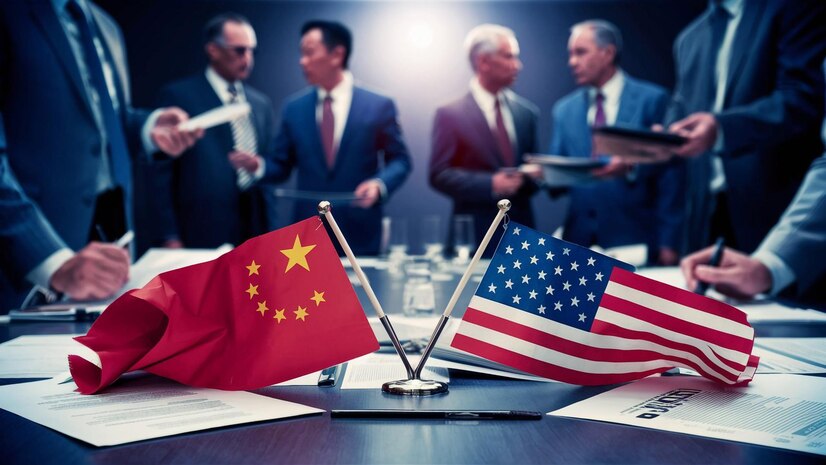The US is fast ratcheting up efforts to stymie China’s advance in the semiconductor industry, which is critical for everything from iPhones to military weapons.
Washington announced some of the most stringent export curbs in October, requiring licenses for companies sending chips to China using US equipment or software, regardless of where they are manufactured.
The limits imposed by Washington also bar US nationals and green card holders from working for select Chinese chip companies. Green card holders are permanent residents of the United States who have the right to work in the nation.
It is severing a vital conduit of American talent to China, which is the development of high-end chips.
Why is the US attempting this?
Supercomputers, artificial intelligence, and military hardware are all powered by advanced chips.
The regulations were issued by Alan Estevez, who claimed he wanted to make sure the US was doing everything in its power to stop China from acquiring “critical technologies with military implications.”
Since the threat landscape is constantly shifting, he said, “we are upgrading our policies today to ensure that we are tackling the challenges.”
Meanwhile, China has called the control a “technology threat.”
Chip-producing countries in Asia, such as Taiwan, Singapore, and South Korea, have expressed worry about how this heated conflict harms the global supply chain.
Over the last week, there have been three key developments in the chip issue.
More Chinese firms are on the ‘ entity list.
The Biden administration has added 36 Chinese businesses to Washington’s “entity list,” including prominent chipmaker YMTC.
It means that American companies will require government approval to sell some technologies to them, which will be tough to obtain
The US prohibitions have far-reaching consequences. Because of US and UK limitations, UK-based computer chip vendor Arm stated last week that it was not selling its most advanced designs to Chinese corporations, including digital giant Alibaba.
According to Arm, the company is “committed to complying with all applicable export rules and regulations in the areas in which it operates.”
China files a WTO complaint.
China has complained to the World Trade Organization (WTO) about the United States export curbs on semiconductors and other related technology.
It is the first WTO complaint initiated by China against the United States since President Joe Biden took office in January 2021.
In its WTO application, China argued that the US is misusing export limits to retain “its supremacy in science, technology, engineering, and manufacturing.
It stated that US measures jeopardized “the stability of the global industrial supply chains.”
In response, the US stated that the trade group was “not the appropriate forum” for resolving national security problems.
According to Thea Kendler, US Assistant Secretary of Commerce for Export Administration, “US national security interests necessitate that we move decisively to prevent access to advanced technologies.”
